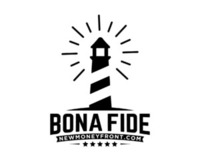The Secretariat of Prizes and Bets (SPA) has published a new ordinance outlining the procedures for payment institutions accepting transactions via illegal bets.
Normative Ordinance No 566, published today (21 March), relates to article 21 of Law No 14,790, also known as the federal betting law in Brazil. Released in December 2023, the regulation banned financial institutions from accepting or facilitating betting transactions involving operators that haven’t received a federal licence to operate in Brazil’s legal online betting market.
The new ordinance establishes conditions, deadlines and flows of information for reporting payment methods used to place illegal bets.
It mandates that financial institutions must adopt procedures and controls to help them identify illegal betting transactions. Relevant information must then be forwarded to the SPA with details on their reasoning for the report, as well as the Individual Taxpayer Registration (CPF) number for the individual involved.
The information must be sent to the SPA within 24 hours of becoming aware of the suspicious activity. And once the SPA has confirmed transfers via unlicensed gambling are being accepted, it will notify the payments companies involved to terminate the relationship with the client, for acting illegally.
The SPA will keep an updated list of authorised operators, as well as those companies that either had their licence applications rejected or have had their information forwarded for blocking to the National Telecommunications Agency (Anatel) under suspicion of offering illegal bets.
Failure to comply with the ordinance’s obligations could result in a fine. This is based on Normative Ordinance No 1,225, which relates to monitoring and inspection, and Normative Ordinance No 1,233. Both make up the regulatory framework which determines appropriate sanctions for illegally operating entities.
The SPA’s ordinance on sanctions clarifies the regulator can issue a fine of between 0.1% and 20% of proceeds, with a maximum penalty of BRL2bn (£271.5 million/€323.9 million/$351.7 million).
Payment blocking of illegal betting in Brazil
The regulated online betting market launched on 1 January, although the black market remains a big concern for licensed companies, as they believe illegal operators that don’t pay tax and don’t adhere to the strict federal licence requirements cause unfair competition.
Efforts to block illegal domains have been described by Anatel president Carlos Baigorri as “like mopping up ice”. The industry collectively agrees that payment blocking is a much more effective method of restricting the black market.
The regulator has banned illegal gambling transactions made using Pix, an instant payment service that is used by the vast majority of the gambling sector in Brazil and is controlled by the Central Bank.
Pay4Fun director Ari Celia previously told iGB he expects that to be the most effective measure in limiting the black market.
“If any commercial bank isn’t aware they have a company or client that is using illegal sites, as soon as they receive a warning from the Central Bank they will shut down their bank account immediately,” Celia explained.
“If they don’t, they’ll be subject to fines. There’s no point for any commercial bank in Brazil to allow those accounts to process Pix once they are notified.”
The Secretariat of Prizes and Bets (SPA) has published a new ordinance outlining the procedures for payment institutions accepting transactions via illegal bets.
Normative Ordinance No 566, published today (21 March), relates to article 21 of Law No 14,790, also known as the federal betting law in Brazil. Released in December 2023, the regulation banned financial institutions from accepting or facilitating betting transactions involving operators that haven’t received a federal licence to operate in Brazil’s legal online betting market.
The new ordinance establishes conditions, deadlines and flows of information for reporting payment methods used to place illegal bets.
It mandates that financial institutions must adopt procedures and controls to help them identify illegal betting transactions. Relevant information must then be forwarded to the SPA with details on their reasoning for the report, as well as the Individual Taxpayer Registration (CPF) number for the individual involved.
The information must be sent to the SPA within 24 hours of becoming aware of the suspicious activity. And once the SPA has confirmed transfers via unlicensed gambling are being accepted, it will notify the payments companies involved to terminate the relationship with the client, for acting illegally.
The SPA will keep an updated list of authorised operators, as well as those companies that either had their licence applications rejected or have had their information forwarded for blocking to the National Telecommunications Agency (Anatel) under suspicion of offering illegal bets.
Failure to comply with the ordinance’s obligations could result in a fine. This is based on Normative Ordinance No 1,225, which relates to monitoring and inspection, and Normative Ordinance No 1,233. Both make up the regulatory framework which determines appropriate sanctions for illegally operating entities.
The SPA’s ordinance on sanctions clarifies the regulator can issue a fine of between 0.1% and 20% of proceeds, with a maximum penalty of BRL2bn (£271.5 million/€323.9 million/$351.7 million).
Payment blocking of illegal betting in Brazil
The regulated online betting market launched on 1 January, although the black market remains a big concern for licensed companies, as they believe illegal operators that don’t pay tax and don’t adhere to the strict federal licence requirements cause unfair competition.
Efforts to block illegal domains have been described by Anatel president Carlos Baigorri as “like mopping up ice”. The industry collectively agrees that payment blocking is a much more effective method of restricting the black market.
The regulator has banned illegal gambling transactions made using Pix, an instant payment service that is used by the vast majority of the gambling sector in Brazil and is controlled by the Central Bank.
Pay4Fun director Ari Celia previously told iGB he expects that to be the most effective measure in limiting the black market.
“If any commercial bank isn’t aware they have a company or client that is using illegal sites, as soon as they receive a warning from the Central Bank they will shut down their bank account immediately,” Celia explained.
“If they don’t, they’ll be subject to fines. There’s no point for any commercial bank in Brazil to allow those accounts to process Pix once they are notified.”















